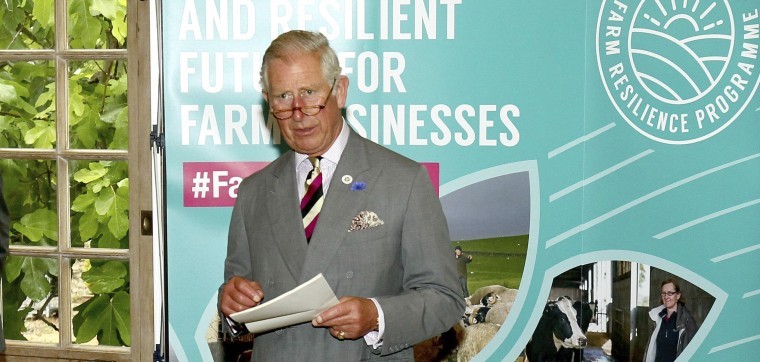Endorsed by HRH The Prince of Wales, the charity’s patron, the Prince’s farm resilience programme will provide free practical and essential business support and one to one guidance to 20 small dairy, livestock and mixed family farm businesses in the county.
On Tuesday 14 February an information session was held in the rural business centre at Plumpton College, East Sussex. This was a chance for farm businesses to find out more about the programme and meet their local coordinator.
The Prince’s countryside fund aims to improve the prospects of family farm businesses and the quality of rural life and is leading the £1.5 million, five year initiative to help tackle some of the biggest challenges faced by small farm businesses across the UK.
Building on the success of the Prince’s dairy initiative, the new programme will support up to 300 farm businesses each year across the UK. A small family farm is defined as having two full time equivalents working on it. The farms will be invited to take part in a programme of workshops and access to support. There is no qualifying data for a place on the programme.
Speaking at the launch of the programme in July, Prince Charles said: “The small farms which have been such an integral part of Britain’s landscape for thousands of years are under threat. My farm resilience programme is designed to respond to those threats by helping up to 300 farm businesses. It is the most far reaching programme ever offered by my fund.”
Recent research commissioned by the fund and carried out by the University of Exeter into the future of the small family farm in the UK, revealed a steep decline in numbers since the beginning of the century. The last three years of declining farmgate prices has put an unprecedented strain on farm businesses with the average farm income falling below £20,000 for the first time since 2007.
To take part in the programme, contact local coordinator Catherine Daw 01273 890454 (extension 2633) or catherine.daw@plumpton.ac.uk.
The Morrisons Foundation has donated £250,000 for the programme’s first two years. This was mainly funded by the sale of single use carrier bags, which has to be spent on charitable activities.




